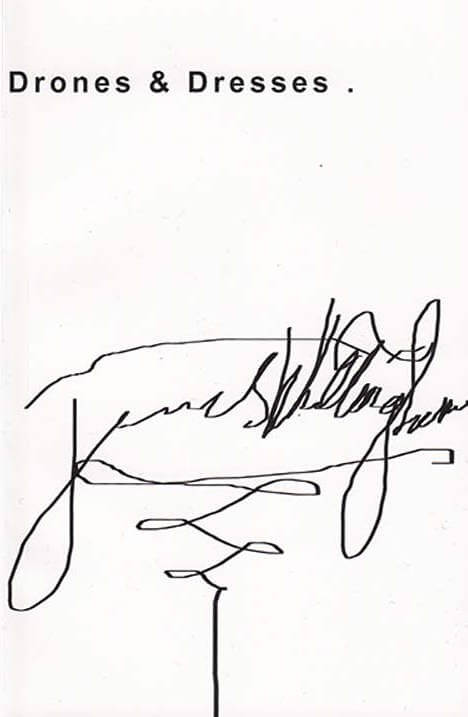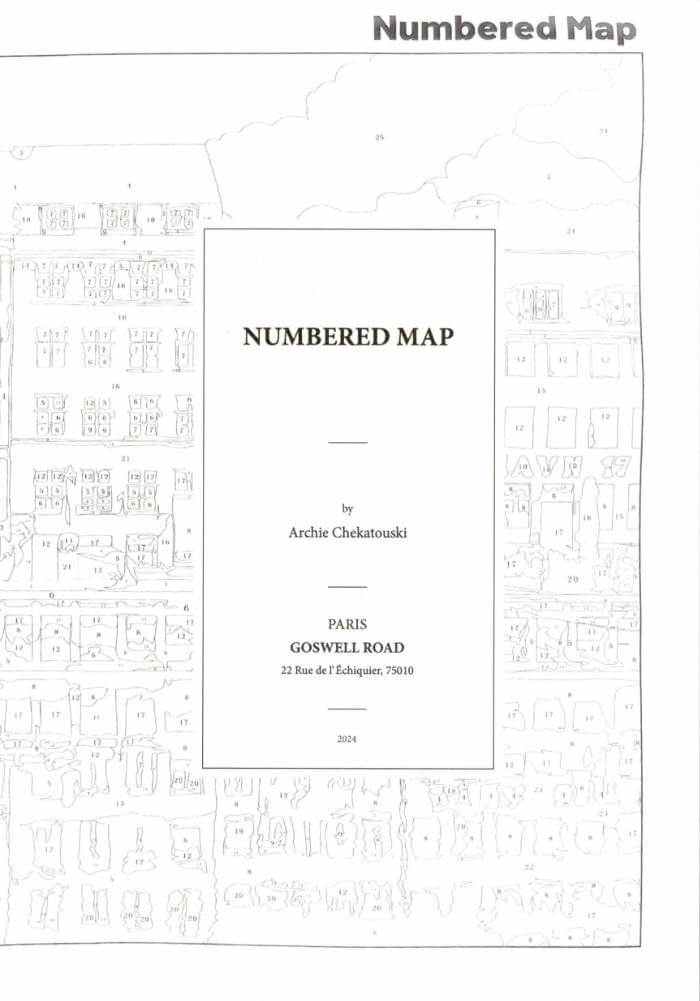
Drones and Dresses
Language: English

Language: English

‘Human beings embody whatever they meet, and it’s all there when you work whether you want it there or not.’ Practice is like the dust that accumulates, and revisiting fragments of essays and talks on choreography Jonathan Burrows ended up embracing the haphazard and the mess, moments of unfocus and focus, harnessing them in pithy formulations and scores, adding room and punctuation and line breaks in the process so readers can hear the rhythm as he writes his dance on writing dance.
Jonathan Burrows is a choreographer, who has worked for many years in collaboration with the composer Matteo Fargion, with whom he continues to create and perform work. He is the author of A Choreographer’s Handbook (Routledge, 2010) and is currently an Associate Professor at the Centre for Dance Research, Coventry University.
Published by Varamo Press in the essay series Gestures
Graphic design by Michaël Bussaer

Goswell Road publishes ‘Numbered Map’ by Archie Chekatouski, to accompany his exhibition 'You can do so much more with a chair than you can with a painting?'. The publication is edited in 30 copies and focuses on Chekatouski’s Paint-by-numbers Series.
Bio: Archie Chekatouski (born 1996 in Minsk, Belarus) lives and works in Paris. His works are touchingly silly and beautifully simple.

‘Corrections and Clarifications’ is an ongoing newsprint project by Anita Di Bianco, an edited compilation of daily revisions, retractions, re-wordings, distinctions, and apologies to print news from September 2001 to the present. In essence, a reverse chronological catalogue of lapses in naming and classification, tangled catchphrases, and patterns of misspeak and inflection.
Previous editions have examined the printed news media in the United States and United Kingdom, Germany, Austria and Switzerland, and other international press from Asia, Turkey, and the Balkans printed in English. The publication includes text contributions by Di Bianco and Francesco Gagliardi.
108 p, ills bw, 24 x 32 cm, hb, German/English

¶#3 consists of texts and images found on the online collaborative encyclopedia Wikipedia, BIC pen drawings by Kim David Bots and the poem The Mental Traveller by William Blake. ¶#3 is assembled by Kim David Bots, designed by Tjobo Kho, edited by Jan-Pieter ‘t Hart and published in an edition of 150 by OUTLINE in May 2022.